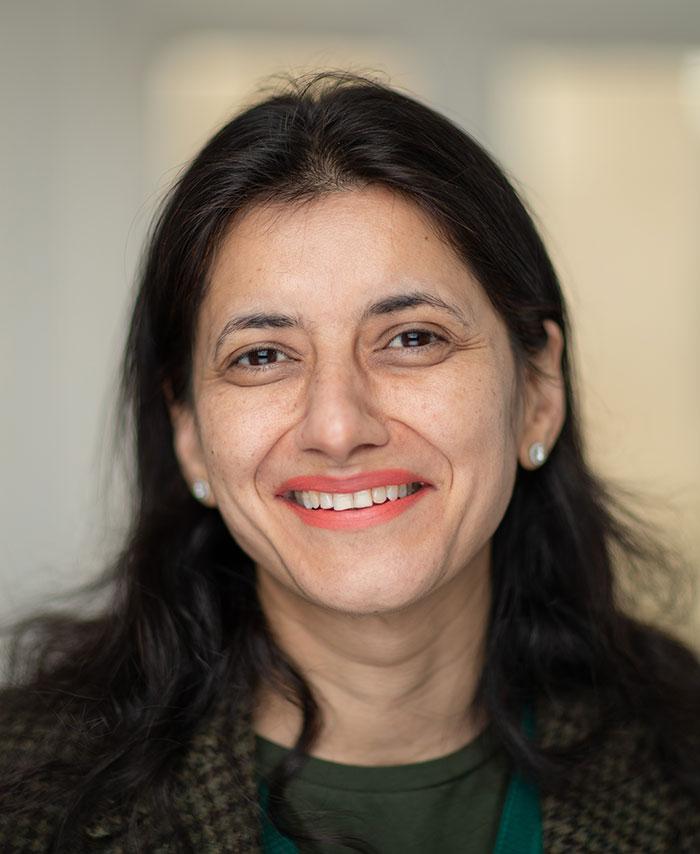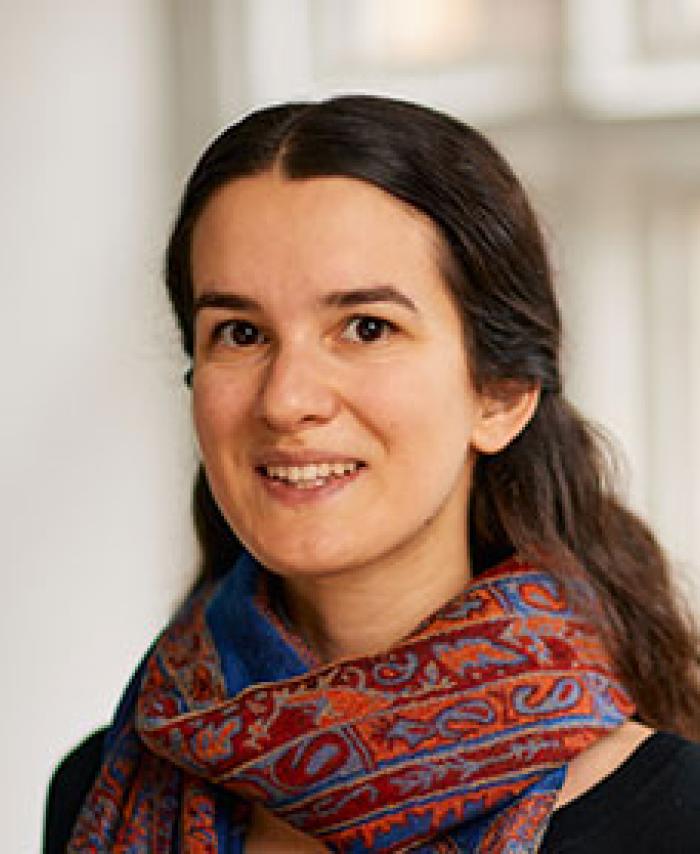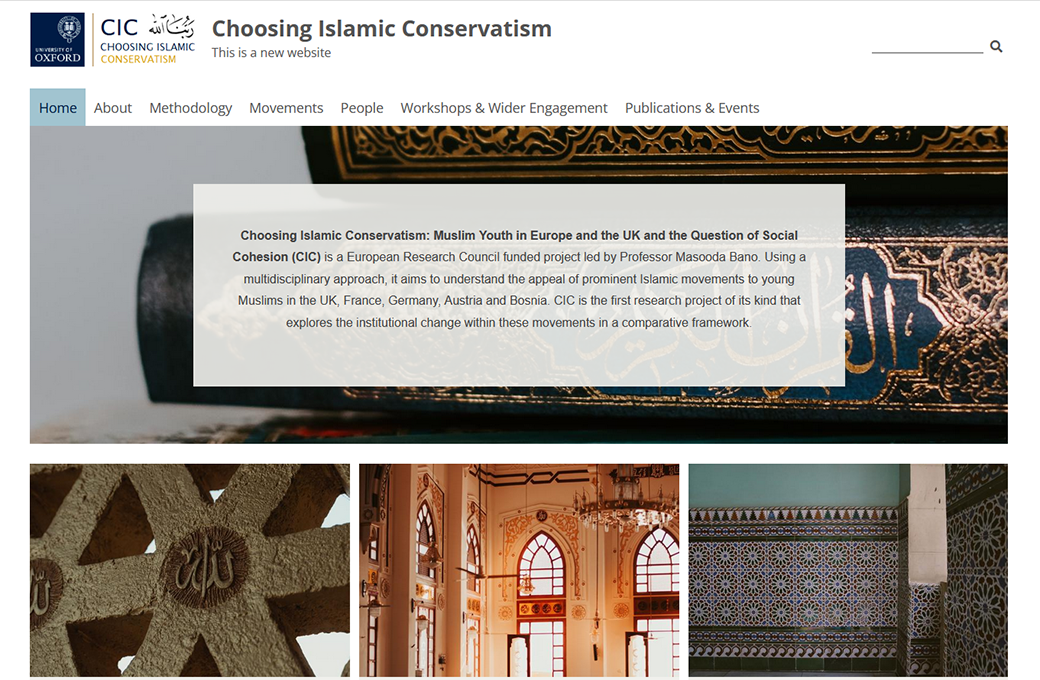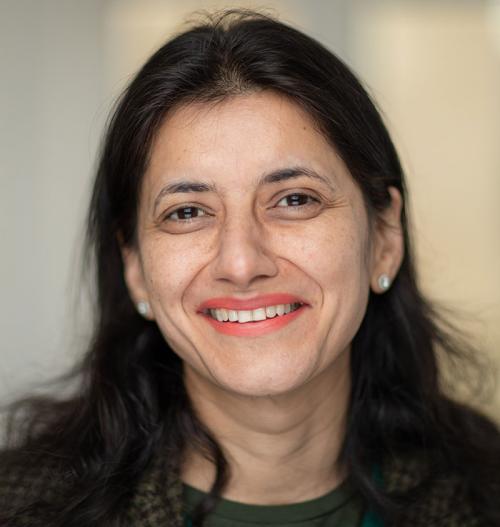
Research interests
New institutional economics; informal institutions; religion and development; madrasas; Islamic political movements; and aid's impact on NGOs in the South
Masooda Bano
Masooda Bano is Professor of Development Studies and Senior Researcher at ODID. Her primary area of interest rests in studying the role of ideas and beliefs in development processes and their evolution and change. Particular emphasis is on understanding the dynamic interplay between material and psycho-social incentives and the consequences of this for individual choices and collective development outcomes. Professor Bano builds large-scale comparative studies combining ethnographic and survey data.
Professor Bano has recently completed a five-year major research project — Changing Structures of Islamic Authority and Consequences for Social Change - A Transnational Review — supported by a €1.4 million European Research Council (ERC) Starting Grant. Building on her earlier work where she argues that in order for beliefs to persist they must have everyday relevance, the project studied how both old and new centres of Islamic authority are responding to changed expectations of Muslim youth in Muslim-majority countries as well as those living in the West. Key publications from the project include: The Revival of Islamic Rationalism: Logic, Metaphysics and Mysticism in Modern Muslim Societies (Cambridge University Press 2020) and Female Islamic Education Movements: The Re-Democratisation of Islamic Knowledge (Cambridge University Press 2017); and two edited volumes: Modern Islamic Authority and Social Change: Evolving Debates in Muslim Majority Countries. Vol. 1. (Edinburgh University Press 2018) and Modern Islamic Authority and Social Change: Evolving Debates in the West. Vol. 2. (Edinburgh University Press 2018).
Professor Bano currently holds an ERC Advanced Grant for a major research project – Choosing Islamic Conservatism.
Prior to this Professor Bano held an ESRC/AHRC flagship Ideas and Beliefs Fellowship and an ESRC Post-Doctoral Fellowship. Currently, she is the Principal Investigator for the research package on Political Economy of Implementation (PET-I) under Research on Improving Systems of Education (RISE) — a £36.8 million research project funded by the UK’s Foreign, Commonwealth and Development Office (FCDO) to understand the causes of learning crisis in the developing world.
Other completed major studies resulted in two book monographs, The Rational Believer: Choices and Decisions in the Madrasas of Pakistan (Cornell University Press) and Breakdown in Pakistan: How Aid is Eroding Institutions for Collective Action (Stanford University Press).
Between 2008 and 2016, Professor Bano advised on the largest ever education sector support programme rolled out by the UK's Department for International Development (DfID) in Nigeria, leading a number of studies to understand existing education choices in the northern states of Nigeria. She has also designed specific interventions to increase children’s access to primary education under this project, one of which has been profiled by ESRC as being amongst the best examples of social science impact. She has participated in many media interviews including those for BBC World, the BBC World Service (English and Urdu), BBC Radio 4 and her research has also featured in The Guardian (UK), The New York Times (USA), the ESRC website, Oxford University publications, and the Times Education Supplement.
Professor Bano is William Golding Senior Fellow at Brasenose College.
Masooda Bano lectures on Research Methods and the core Development Studies course for the MPhil in Development Studies, supervises MPhil and DPhil theses and offers an option on Gender and Development. During the academic year 2009-10, she also taught a course on Islam and Democracy at SOAS.
Research students supervised
-
Books and monographs( ) Salafi Social and Political Movements: National and Transnational Contexts . , Edinburgh University Press( ) The Revival of Islamic Rationalism: Logic, Metaphysics and Mysticism in Modern Muslim Societies . , Cambridge University Press( ) Modern Islamic Authority and Social Change Volume 2: Evolving Debates in the West . , Edinburgh University Press( ) Modern Islamic Authority and Social Change Volume 1: Evolving Debates in Muslim Majority Countries . , Edinburgh University Press( ) Female Islamic Education Movements: The Re-Democratisation of Islamic Knowledge . , Cambridge: Cambridge University Press.( ) Shaping of Global Islamic Discourses: Role of Al-Azhar, Al-Medina, and Al-Mustafa . , Edinburgh University Press( ) Women, Leadership and Mosques: Changes in Contemporary Islamic Authority . , Leiden: Brill( ) The Rational Believer: Choices and Decisions in the Madrasas of Pakistan . , Ithaca, NY: Cornell University Press. (South Asia edition published by Cambridge University Press, New Delhi, 2013)( ) Breakdown in Pakistan: How Aid is Eroding Institutions for Collective Action . , Palo Alto, CA: Stanford University Press. (South Asia edition published by Cambridge University Press, New Delhi, 2013)( ) Religion in Development: Rewriting the Secular Script . , Zed Books
-
Journal articles and special issues( ) Islamic Authority and Centres of Knowledge Production in Europe . Journal of Muslims in Europe( ) Partnerships and the Good Governance Agenda: Improving Service Delivery Through State-NGO Collaborations . Voluntas 30 1270-83( ) Contracting out of Basic Health Facilities in Pakistan: Are the Lessons Generalizable? Development Policy Review 37 (2)( ) Official al-Azhar versus al-Azhar Imagined: the Arab Spring and the Revival of Religious Imagination . Die Welt des Islams 59 7-32( ) Skills Development and International Development Agenda Setting: Lessons from an Intervention in Northern Nigeria . The European Journal of Development Research 30 789-808( ) At the Tipping Point?: al-Azhar’s Growing Crisis of Moral Authority . International Journal of Middle East Studies 50 (4) 715-34( ) Barriers to Primary Completion and Transition in Northern Nigeria: Evidence from a Non-formal Schooling Intervention. . COMPARE: Journal of Comparative and International Education 5 (1)( ) Buying Consent: The Achilles' Heel of Aid-Induced Community Participation . Journal of South Asian Development 12 (3) 213-35( ) Religion and female empowerment: evidence from Pakistan and northern Nigeria Canadian Journal of Development Studies / Revue canadienne d'études du développement( ) Family versus School Effect on Individual Religiosity: Evidence from Pakistan . International Journal of Educational Development 59 35-42( ) Regulating religious authority for political gains: al-Sisi's manipulation of al-Azhar in Egypt Third World Quarterly 39 (8)( ) Madrasa Reforms and Islamic Modernism in Bangladesh . Modern Asian Studies 48 (4) 911-39( ) Welfare Work and Politics of Jama'at-i-Islami in Pakistan and Bangladesh . Economic and Political Weekly XLVII (01)( ) Co-Producing with FBOs: Lessons from State-Madrasa Engagement in the Middle East and South Asia . Third World Quarterly 32(7) 1273-89( ) Negotiating Collaboration in Pakistan: Expertise, Networks and Community Embeddedness . Public Administration and Development 31(4) 262-72( ) Madrasas as Partners in Education Provision: The South Asian Experience . Development in Practice 20(4&5) 554-66( ) Empowering Women: More Than One Way? . Hagar: Special Issue on Critical Perspectives on Gender and Development 9(1)( ) Non-profit Education Providers vis-a-vis the Private Sector: Comparative Analysis of NGOs and Traditional Voluntary Organisations in Pakistan . Compare 38(4)( ) Dangerous Correlations: Aid's Impact on NGO's Performance and Ability to Mobilize in Pakistan . World Development 36(11) 2297-313( ) Contested Claims: Public Perceptions and the Decision to Join NGOs in Pakistan . Journal of South Asian Development 3(1) 87-108( ) Beyond Politics: the Reality of a Deobandi Madrasa in Pakistan . Journal of Islamic Studies 18(1) 43-68
-
Chapters( ) The Deobandi Network: Steadfast in Taqlīd . In M Bano Modern Islamic Authorities and Social Change: Evolving Debates in Muslim Majority Countries. Vol. 1 , Edinburgh: Edinburgh University Press( ) Saudi Salafism Amid Rapid Social Change . In M Bano Modern Islamic Authorities and Social Change: Evolving Debates in Muslim Majority Countries. Vol. 1 , Edinburgh: Edinburgh University Press( ) Introduction . In M Bano Modern Islamic Authorities and Social Change: Evolving Debates in Muslim Majority Countries. Vol. 1 , Edinburgh: Edinburgh University Press( ) Diyanet: Taking Center Stage . In M Bano Modern Islamic Authorities and Social Change: Evolving Debates in Muslim Majority Countries. Vol. 1 , Edinburgh: Edinburgh University Press( ) Turkish Islamic Debates: Diyanet, Hayrettin Karaman, and Recep Şentürk. . In M Bano Modern Islamic Authorities and Social Change: Evolving Debates in Muslim Majority Countries. Vol. 1 , Edinburgh: Edinburgh University Press( ) al-Azhar University: A Crisis of Authority . In M Bano Modern Islamic Authorities and Social Change: Evolving Debates in Muslim Majority Countries. Vol. 1 , Edinburgh: Edinburgh University Press( ) Introduction . In M Bano Modern Islamic Authorities and Social Change: Evolving Debates in the West Vol 2 , Edinburgh: Edinburgh University Press( ) Protector of the 'al-Wasatiyya' Islam: Cairo's al-Azhar University . In M Bano, K Sakurai Shaping Global Islamic Discourses: The Role of Al-Azhar, Al-Medina and Al-Mustafa , Edinburgh: Edinburgh University Press( ) Introduction . In M Bano, K Sakurai Shaping Global Islamic Discourses: The Role of Al-Azhar, Al-Medina and Al-Mustafa , Edinburgh: Edinburgh University Press( ) Female Leadership in Mosques: An Evolving Narrative . In M Bano, H Kalmbach Women, Leadership and Mosques: Changes in Contemporary Islamic Authority , Leiden: Brill( ) Pakistan's Security Predicament: Religion, Economics or Geopolitics? . In V Mauer, D Cavelty Routledge Handbook of Security Studies , London: Routledge
-
Working papers( ) Co-Production: Do FBOs Offer a Potential? . Non Governmental Public Action Research Programme Working Paper 41 , London School of Economics( ) Engaged yet Disengaged: Islamic Schools and the State in Kano, Nigeria . Religions and Development Research Programme Working Paper 29 , University of Birmingham( ) Marker of Identity: Religious Parties and Welfare Work: The Case of Jama'at-i-Islami in Pakistan and Bangladesh . Religions and Development Research Programme Working Paper 34( ) Allowing for Diversity: State-Madrasa Relations in Bangladesh . Religions and Development Research Programme Working Paper 13 , University of Birmingham( ) Contesting Ideologies and Struggle for Authority: State-Madrasa Engagement in Pakistan . Religions and Development Research Programme Working Paper 14 , University of Birmingham




